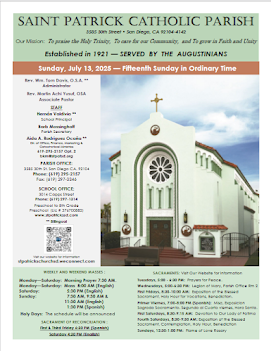Remembering Desmond Tutu, a fearless truth-teller who preached nonviolence and forgiveness
Decades ago, Anglican Archbishop Desmond Tutu had defied the South African apartheid government's ban on Black people using the country's beaches by leading a group of protesters along Cape Town's Atlantic shore with several of them carrying signs asking "Whose beach is this?" Others marched with the answer: "These are God's beaches."
"This was one of the stories Tutu shared with this reporter in response to a question about how does one protest peacefully in the midst of violent opposition," writes longtime NCR contributor Patricia Lefevere, recalling an interview she had with Tutu in early August 1983 on the campus of the University of British Columbia in Vancouver, where the World Council of Churches was holding its Sixth World Assembly.
"I asked what gave him hope amid so much violence and repression in his homeland," Lefevere writes. "... He mentioned the portraits of Black baseball legend Jackie Robinson on the covers of Life and Time magazines in the late 1940s. Born in 1931, Tutu was a teenager in secondary school when he first read these articles. They told him anything was possible, 'it just might take a long time,' he said."
Read more of the remembrance here.
More background:
-
Read the obituary for Anglican Archbishop Desmond Tutu, who died in Cape Town on Dec. 26 at the age of 90.
What to expect in the world of US politics in 2022
"If last year began with the hope that normalcy might return, a hope that was often thwarted, this year the politics of the nation are marked by a fear that the signs of decline in the very fabric of our democracy might become dominant," writes NCR political columnist Michael Sean Winters. "Worse, no one is exactly sure how to combat this threat."
A poll of young people conducted by Harvard's Kennedy School Institute of Politics last autumn found that 52% of those aged 18-29 thought America's democracy was "in trouble" or worse, that ours is a "failed democracy."
"The lack of faith in the future of democracy has two components," Winters says. "The most immediate concern is with the way election laws are being changed, mostly by Republican state legislatures, changes that invite abuse of the democratic process. The second problem is that if the government can't deliver on issues like inflation that really matter to people, or issues like climate change, which will really matter, people understandably begin to wonder if democracy really is so valuable."
More of Winters' column can be read here.
More background:
-
Sign up here to receive an email each time a new column from Winters is posted.
More headlines
-
Nigerian-born Fr. Athanasius Abanulo has filled various chaplain and pastor roles across the United States, epitomizing an ongoing trend of international clergy recruits as fewer American-born men enter seminaries.
-
Few years have felt as connected to the previous one as 2021 — largely because the global pandemic of 2020 continued this year. Amid COVID-19 and other challenges, sisters served with commitment and care. Here is a rundown of 2021 as chronicled in Global Sisters Report.
-
At EarthBeat, check out a new report about the Amazon Basin's natural and human history that points to potential solutions to prevent further degradation of tropical ecosystems in the region. Also, check out EarthBeat's top stories of 2021 that captured readers' attention.
























No comments:
Post a Comment